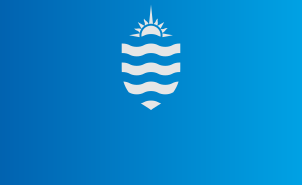Media Releases
An Australian first for JCU Cairns

James Cook University (JCU) has opened Australia’s first NarrowBand Internet of Things research lab (NBIoT) in Cairns today, featuring technology provided by information and communications technology giant Huawei.
JCU launched Australia’s first IoT-specific degree last year – the Bachelor of Engineering in Electronic Systems and the Internet of Things – and today announced a partnership with global IoT leader Huawei.
The degree combines the study of electronic engineering with internet technologies, wireless communications, sensor devices, industrial design and cloud computing.
“The Internet of Things is based on something that is central to our mission in the Tropics: building greater connectivity between people, place and technology,” JCU Vice Chancellor Professor Sandra Harding said.
“From designing smarter cities, to growing precision agricultural systems, monitoring natural environments in real-time, and creating clever health solutions that work in remote communities – we don’t want to be just a part of that future, we want to lead it. Huawei are the perfect partners for us in that ambition.”
At this morning’s launch a new IoT research facility, as well as a new teaching laboratory and workshops, were officially opened. Huawei will also provide direct funding for specialised research, and will offer selected JCU students the opportunity to travel to the company’s global headquarters in China, and its Australian headquarters in Sydney, as part of its highly successful Seeds for the Future program.
“We all know that IoT is going to be the major game changing technology of the future and NB-IoT will be the major driver of this ICT revolution,” Mr Xichu Zhao (James), CEO Huawei Australia said.
“Huawei is committed to open innovation and cooperation, creating greater value for our customers, advancing the ICT industry, and ultimately investing and building a better connected Australia.
“Working closely with strong partners like James Cook University, we can help build a stronger and better IoT ecosystem,” Mr Zhao said.
Professor Marcus Lane, Dean of Science and Engineering at JCU, said research now in development included the development of wearable devices to monitor the condition of patients with chronic diseases, such as diabetes and hypertension, and a smart reef project in which undersea sensors would collect and deliver real-time data on water quality.
“This is technology that’s applicable to most industries, as well as many areas of JCU’s own research,” Professor Lane said. “The IOT Engineering degree plays an important role in training students for the high-value, knowledge-based jobs of the future.”
Professor Wei Xiang, head of the IoT program at JCU, said IoT was the future of digital innovation, and the new facilities would enable JCU to train students on the latest equipment.
“This equipment is so new it’s not on sale in the Australian market. It gives our students and staff an experimental platform that conforms to the latest IoT international standard, which has been agreed upon by leading IoT companies in the world,” Professor Xiang said.
About Huawei
Huawei is a leading information and communications technology (ICT) solutions provider serving 45 of the world’s top 50 telecom operators. In Australia, Huawei creates over 800 jobs and works with all major Australian operators. Half of the Australian population already use some sort of Huawei product for their telecommunications needs. Huawei’s products and solutions have been deployed in over 170 countries and support the communications needs of one third of the world’s population. For more information, please visit the Huawei website, follow us on Twitter @HuaweiOZ or visit us on YouTube.
Ms Linden Woodward
Senior Media and Communications Officer, James Cook University
T: 07 4232 1007 [61 7 4232 1007]
M: 04 1979 1564
